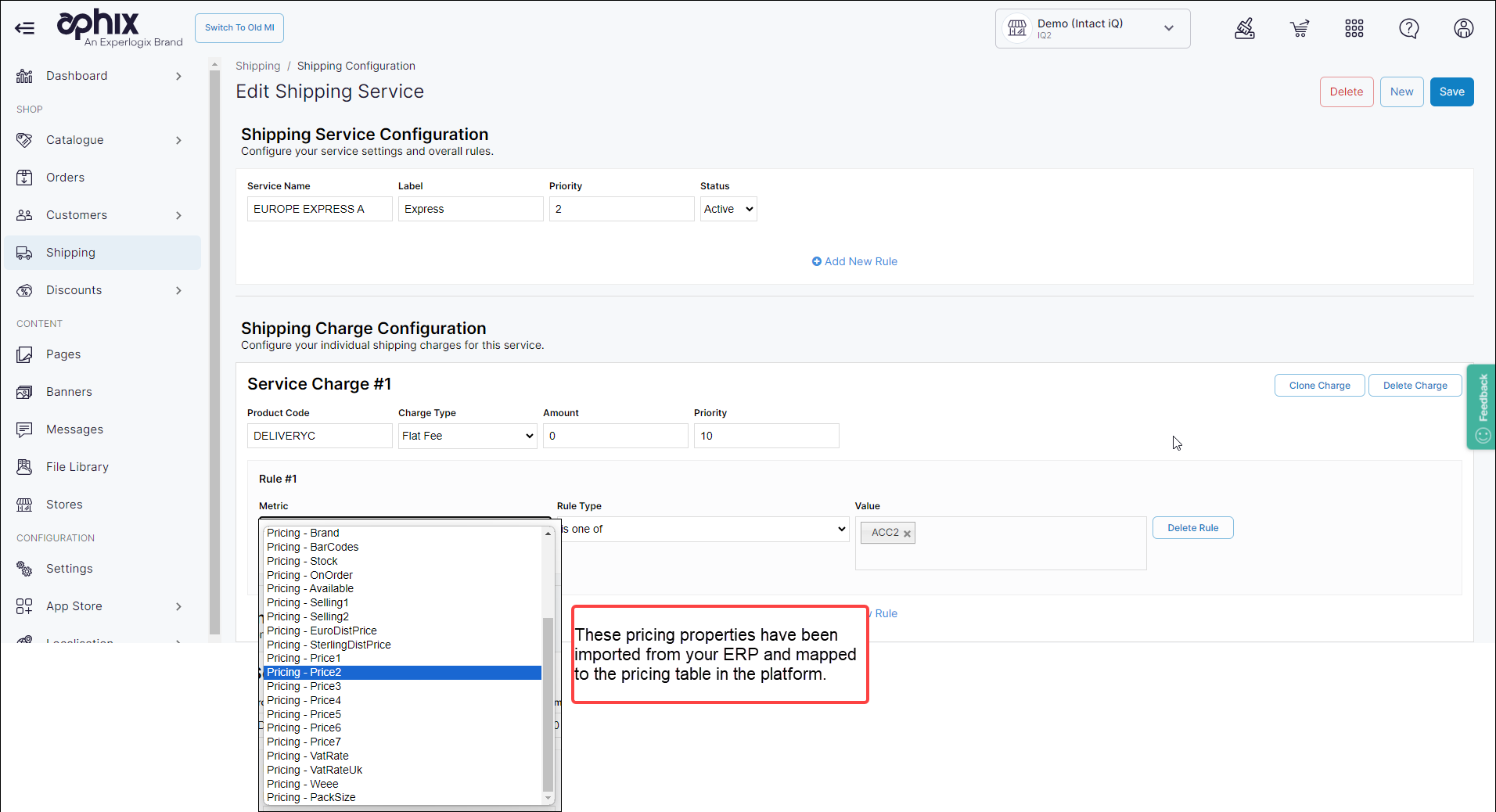Shipping Services in PocketShop
Purpose and scope
As a merchant, you may have complex delivery charges that you wish to apply to your customer's Cart. The Shipping Services feature offers you control and flexibility in how to set up and manage shipping charges. Shipping services are configured in Management Interface. Once activated, they apply immediately to orders placed in PocketShop.
The purpose of this feature guide is to describe what Shipping Services are and how it works.
Remember
By default, a newly created Shipping Service is set to Inactive. Set to Active once you are happy with its configuration.
Click Save once you make changes to any settings in Aphix Management Interface. The changes apply immediately in PocketShop.
Benefits
Key benefits of delivery charges:
Supports your business processes by providing different delivery charge options.
Greater flexibility and control over creating and managing rules around your shipping charges.
Automatically applies the selected delivery charge when either your customer checkouts or updates their cart.
Introducing terms and concepts used in this article
Term | Definition |
|---|---|
Charge rule | A charge rule consists of three elements:
|
Charge type | defines how shipping charges are calculated against the total value of all products contained in the cart. The following charge types are supported:
|
Flat rate delivery charge | a shipping product type that indicates the cost of delivery. The same delivery charge is applied regardless of the value of the order. |
Pricing property | Context: for use with Shipping Service configuration a metric that has been imported from your ERP, mapped to the pricing table in our platform and available for use to configure a charge rule. |
Shipping product code | a product code that has been assigned for use as a shipping code. |
Shipping service | a shipping method comprising of a set of service rules and service charges. |
Service charge | A service charge consists of four elements:
|
Fitting it all together
Shipping services are configured in Management Interface, and apply across our product suite, such as PocketShop. A full description of how the Shipping Service feature works is described here.
Briefly, each shipping service has one or more service charges. Each service charge has one or more charge rules.
You can configure charge rules at two levels:
Shipping service - these rules apply in all scenarios. For example, apply a specific delivery charge to all customers from a specific postcode regardless of the quantity or cost of the order they place.
Service charge - these rules apply when all the rules within a service charge apply. For example, apply a specific delivery charge to customer who spend a certain amount and belong to a specific customer group.
Additionally, you can configure charge rules based on properties that have been imported from your ERP and mapped to the pricing table on our platform. These charge rules allow you to configure more complex delivery charges to meet your business needs. For example, you could configure a charge rule to determine a delivery charge based on product code provided that the product code property has been imported from your ERP and mapped to the pricing table.

